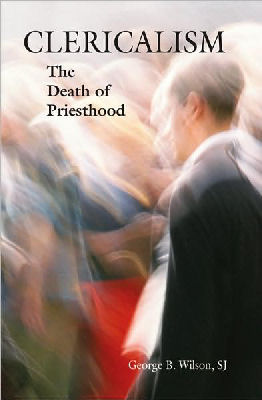
|
January 18, 2008
Book: Clericalism: The Death of Priesthood Author: George B. Wilson, S.J. Liturgical Press. Collegeville, MN. 2008. Pp. 158 An Excerpt from the Jacket:
An Excerpt from the Book: Unexamined attitudes that pertain to the clergy “Because I belong to the clergy I am automatically credible. I don’t have to earn my credibility by my performance.” “People use a special title in addressing me, so I must be something special” “The laity accept these manifestations of privilege so they must be deserved.” “We deserve any privilege the laity seem to want to give us.” “We are special. Who are ‘they’ to judge us?” “If you criticize our profession you are disrespecting us as persons. We do not allow outsiders (or insiders) to criticize anyone in our guild.” “Protecting our image is more important than confronting the situation. If someone blows the whistle on us we will deflect the question and attack the messenger.” “If we ignore what people are saying, we won’t have to change anything.” “It takes special knowledge and training to become certified. The matters we deal with are beyond the comprehension of the laity.” “We know what is important in the life of the laity: we don’t have to experience it ourselves to give them advice on what to do about it.” “Our calling and training makes us superior to the laity.” “Simply by our vocation as ordained ministers we are specialists in the realm of the spirit, and the laity aren’t.” “We don’t have to be accountable to the laity. We are their shepherds.” “I have been ordained. That gives me all I need for my flock. I don’t need anything from the other guys tending their flocks.” “By ordination I enjoy all the gifts the faithful need; I don’t have to be dependent on the gifts of others.” “Keep the voices isolated from one another and they’ll never know their potentiality. Divide – and conquer.” Table of Contents: Part I: Cultures, Clergies, and the Ordained 1. Clerical cultures and how they “work” 2. Priesting before clergyhood 3. When priests become ordained clergy Part II: Tragedy and Transformation 4. The sexual abuse tragedy and the clergies that enacted it 5. Transformation: re-priesting a clericalized church 6. Expectations of the ordained and the laity Suggestions for group study |
|
